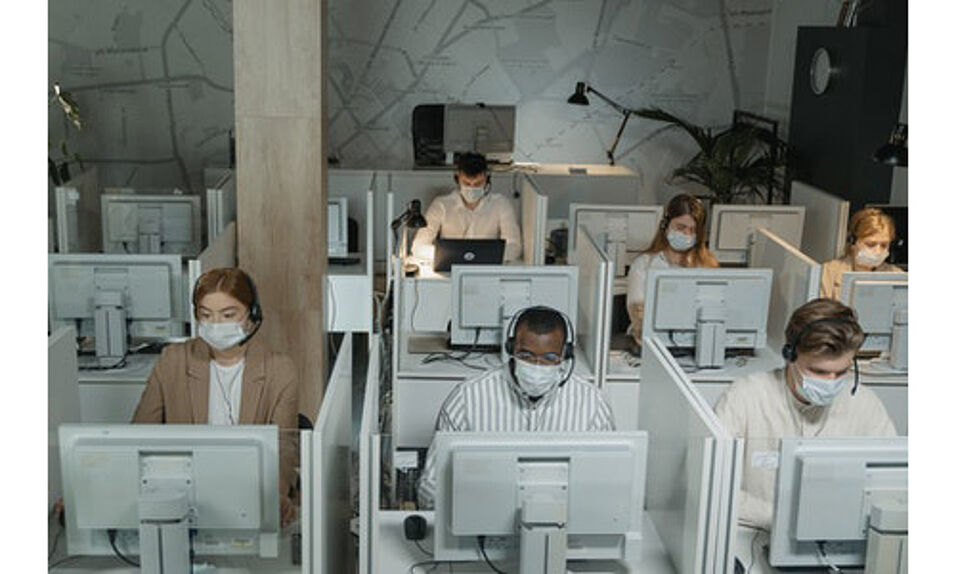Article by Adriana Sofia Palloks (✉ adriana.palloks@univie.ac.at)
Risk of infection, shutdown, home office, short-time work, fear of dismissal. Since its outbreak in spring of 2020, the COVID-19 pandemic has had severe consequences for the workforce in Austria. Changed working conditions put employees' work engagement to the test. However, in order to work through this crisis, corporate management depended on the full commitment of its workforce and on its acceptance of crisis-related decisions. After all, it is the employees who "keep things running" and ensure the survival of the organization even during challenging periods. Adequate crisis communication can be of great help in inspiring employees' engagement.
As part of their study, Sabine Einwiller, Christopher Ruppel and Julia Stranzl from the University of Vienna investigated which forms of internal communication can promote employees' professional engagement in times of crises like the COVID-19 pandemic. The online survey took place between April 6 and April 18, 2020, about three to four weeks after the Austrian government ordered the first shutdown. A total of 1,033 Austrian employees participated, who were employed at companies of various sizes, and of differing industry sectors.
According to the results, both informational and relationship-oriented communication elements, such as participation and appreciation, have a positive effect on employees' attitude to work in the present crisis. For the acceptance of crisis-related decisions made by the organization's management, it is not only the type of information that is decisive, but also the way in which it is communicated. Factual information is essential in order to fundamentally understand the situation and to be able to accept upcoming changes. Information should be communicated as directly and transparently as possible, as this promotes acceptance of management decisions made in response to the crisis.
Besides the acceptance of managerial decisions, the emotional bond of employees towards their workplace must be strengthened, as it has shown great influence on job engagement. Communication elements that convey participation and appreciation can be of great help here. It is important that employees' experiences and opinions are included in decision-making processes. This can be achieved by creating a platform which sparks dialog between top management and employees and by giving them the opportunity to express wishes, suggestions, and concerns. In addition, management can support its employees by praising their performance and thanking them for their commitment. A "pat on the back" from the boss or from top management can boost motivation, as well as emotional ties to the organization. These measures help to ensure that employees maintain or perhaps even increase their commitment, even in a crisis like the COVID-19 pandemic.
On the subject of crisis communication in organizations, lead author Sabine Einwiller emphasizes that "reciprocal" – i.e. mutual – exchange of resources is needed to overcome a crisis: "Organizations rely on their employees' continued support during a crisis situation like the Corona crisis. But, to win this support they must also give something in return, which can be provided via communication. We find that employee support in the form of job engagement is, above all, fostered by relational communication that shows appreciation and allows for participation."
Publication details
Einwiller, S., Ruppel, C., & Stranzl, J. (2021). Achieving employee support during the COVID-19 pandemic – The role of relational and informational crisis communication in Austrian organizations. Journal of Communication Management, 25(3), 233-255. doi:10.1108/JCOM-10-2020-0107




